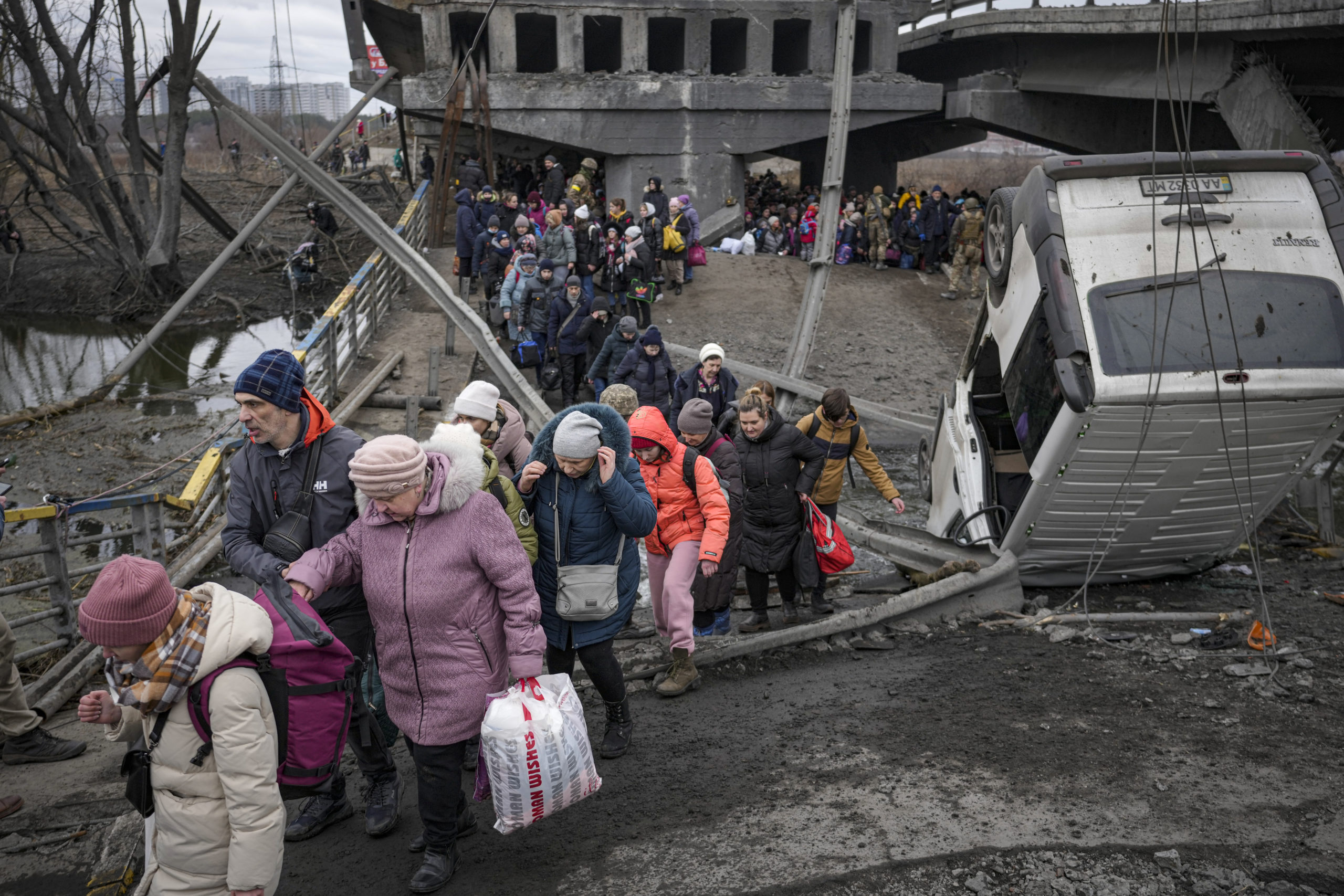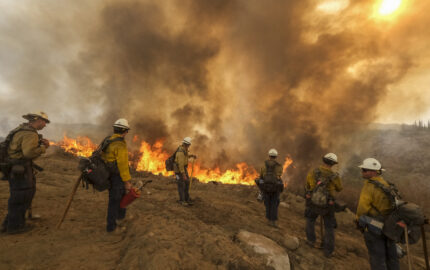The War in Ukraine. Hurricane Ian. The fall of Roe v. Wade. The midterm elections. The continuing pandemic. The intensity and pace of the news showed no signs of slowing in 2022. Throughout the year, Nieman Reports published dozens of commentaries with the aim of improving the way journalists cover these issues and more. From the way we report on natural disasters to how we can better cover the contentious debate around abortion, here are five of Nieman Reports’ best columns of the year.
After Hurricane Ian tore through Florida, leaving behind tens of billions of dollars of damage in its wake, Gilbert Gaul, NF ’83, made the case that journalists need to invest more time in reporting on land use decisions made by local governments and how arduous rebuilding after a natural disaster truly is. Gaul noted that media organizations need to move away from “superficial narratives” that paint increasingly destructive hurricanes as “extraordinary” and move toward coverage that explains why “we have a problem on the coasts, which is to say we have filled some of the most dangerous geography in America with risky, taxpayer-subsidized development, and now call it a natural disaster when hurricanes rip apart the shores.”
Why was Nina Totenberg allowed to cover Supreme Court Justice Ruth Bader Ginsburg, despite their longstanding friendship? Why are Black journalists often considered biased when it comes to reporting on issues like race and criminal justice? Columnist Issac Bailey explored this hypocrisy in an October piece about how our industry’s uneven application of objectivity standards has been a way to maintain the status quo.
After the Supreme Court dismantled Roe v. Wade and the constitutional right to an abortion, a spate of stories published about how people waiting to adopt might benefit from the ruling. Writer Mardi Link argued that most media coverage of adoption routinely fails to include important voices — those who were adopted — and rarely presents the emotional turmoil that can come from a process that cleaves children from their biological families. “Adoption is a parenting decision and abortion is a reproductive decision,” wrote Link, an adoptee herself. “For reporters to equate one as a solution for the other provides nothing of value to readers and perpetuates a false equivalency.”
Days after the Russian Army crossed into Ukraine, longtime NPR reporter Anne Garrels filed a column detailing how Vladimir Putin would try to silence journalists to stop the world from knowing the truth about the invasion. Garrels, an international correspondent who spent years in Russia and the former Soviet Republics, looked to Putin’s long record in Russia to explain how he would squeeze the independent press in Ukraine.
For the past several election cycles, reporting on polls has been a fraught exercise that feeds horserace coverage. But bad data, argued Gary Langer, former ABC News polling chief, too often makes its way into news reports without the proper vetting because they seem authoritative and are easy to cover. His solution? News organizations should develop polling standards and post them on their websites for transparency with the audience.



